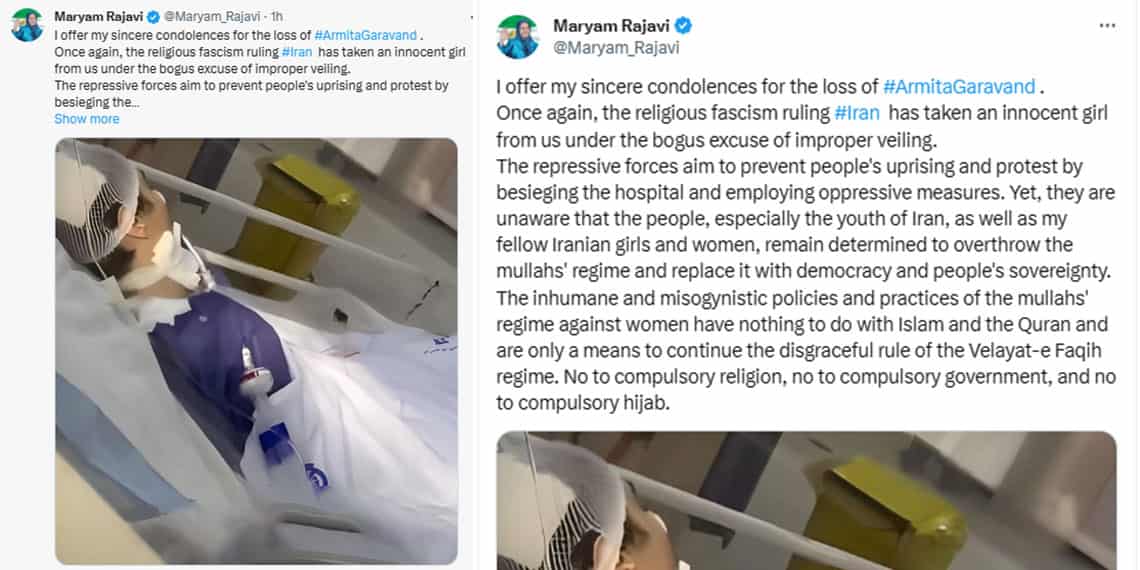

The teenager’s ordeal began on October 1 at Tehran’s Shohada metro station, when she was physically assaulted by a morality police agent for not adhering to the compulsory hijab mandate.
Eye witnesses recounted that Armita had engaged in a confrontation with a female hijab enforcer onboard the metro, culminating in a violent shove by the latter. The force of the push resulted in Armita striking her head against a metal bar, leading to her loss of consciousness. She was subsequently admitted to Tehran’s Fajr hospital, where she battled for her life in the intensive care unit.
As news of the incident spread, the Iranian regime swiftly mobilized a significant security detail at the hospital, limiting access to Armita, including barring her own family. The clampdown further extended to the press, with at least one journalist taken into custody for attempting to cover the story.
Government sources have been accused of manipulating the narrative surrounding the incident. The regime’s media refrained from releasing security footage from inside the metro carriage, instead opting to circulate edited, grainy clips showing only distanced shots of the aftermath. There have also been reports of regime authorities coercing witnesses and Armita’s family into aligning their testimonies with the government’s stance.
Javaid Rehman, the UN Special Rapporteur on human rights in Iran, expressed his grave concerns at the UN General Assembly’s Third Committee on October 24 regarding the circumstances leading to Armita being declared brain dead. Rehman highlighted a wider issue, pointing to the suspected poisoning of over 13,000 students in the country, predominantly girls, across more than 100 schools. He criticized the Iranian government for the restricted democratic participation through the enforcement of ‘Islamic criteria’ or state ideologies.
Amnesty International has further weighed in on the situation, accusing the Islamic Republic officials of concealing the truth about the incident that led to Armita’s coma.
In response to the tragedy, Iranian opposition President-elect Maryam Rajavi of the National Council of Resistance of Iran (NCRI), conveyed her heartfelt condolences. “The religious fascism ruling Iran has once more taken an innocent life under the guise of improper veiling,” Rajavi remarked, emphasizing the people’s continued determination to bring about democratic change in Iran.

Armita Geravand’s death echoes the tragic demise of Mahsa Amini, a 22-year-old who lost her life in a similar incident last year in Tehran at the hands of the morality police. Amini’s untimely death had then ignited a nationwide uprising against the oppressive practices of the regime, amplifying calls for an end to the mullahs’ regime.

MEK Iran (follow us on Twitter and Facebook), Maryam Rajavi’s on her site, Twitter & Facebook, NCRI (Twitter & Facebook), and People’s Mojahedin Organization of Iran – MEK IRAN – YouTu







